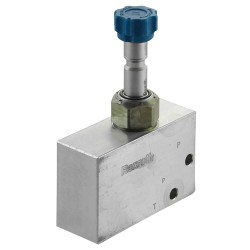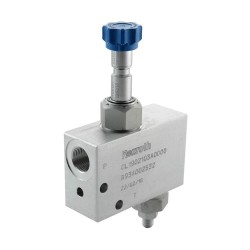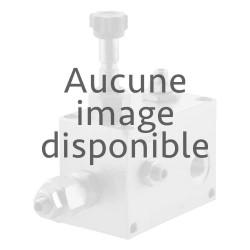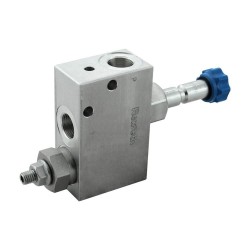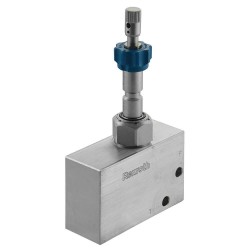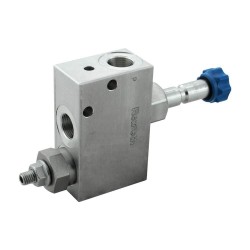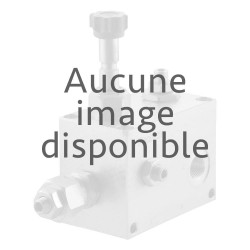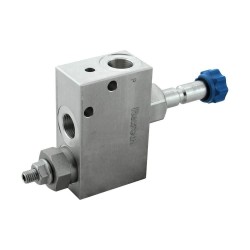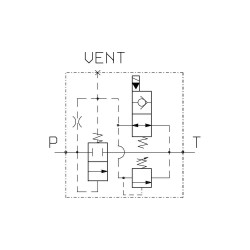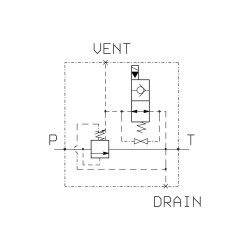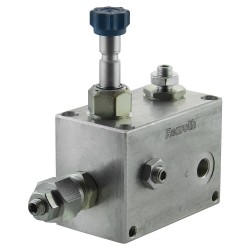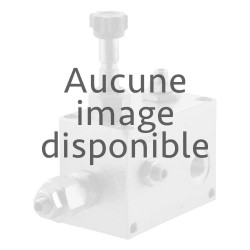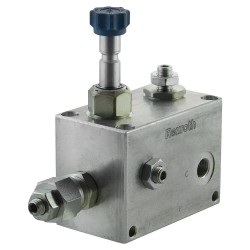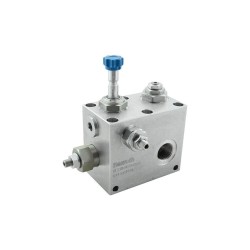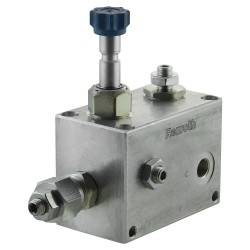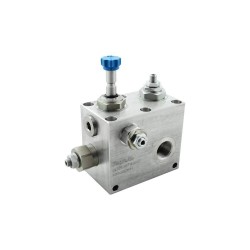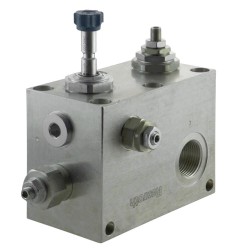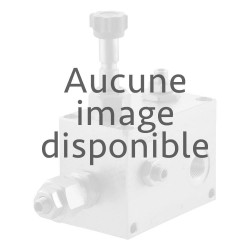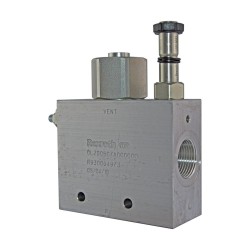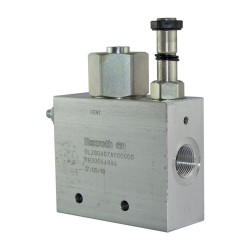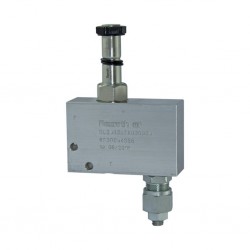Everything You Need to Know About the Hydraulic Bypass Valve: Operation, Use, and Benefits The hydraulic bypass valve is a crucial component in many hydraulic, pneumatic, and thermal systems. Designed to automatically divert the flow of a fluid or gas based on pressure conditions, it plays a key role in protecting equipment while ensuring smooth...
Everything You Need to Know About the Hydraulic Bypass Valve: Operation, Use, and Benefits
The hydraulic bypass valve is a crucial component in many hydraulic, pneumatic, and thermal systems. Designed to automatically divert the flow of a fluid or gas based on pressure conditions, it plays a key role in protecting equipment while ensuring smooth, uninterrupted operation. This article will explain in detail what a By pass valve is, how it works, and the applications in which it is used.
What is a By-pass valve ?
A By-pass valve is an automatic valve that allows fluid to bypass certain equipment, such as a pump, heat exchanger, or filter, when operating conditions require it. Unlike a manual valve, a By pass valve operates without human intervention. It opens automatically when system pressure exceeds a certain threshold, thus protecting sensitive components from excessive pressure or blockages.
How Does a Bypass Valve Work?
The By-pass valve is activated by the pressure differential in the system. When upstream pressure reaches a certain level, the valve opens to allow fluid to pass through an alternative route. This prevents equipment overload and reduces the risk of damage. Once the pressure returns to normal levels, the valve closes automatically.
Benefits of the Hydraulic By-pass valve
Equipment protection: The primary benefit of the by-pass valve is to protect critical equipment from overpressure or blockages, thereby extending their lifespan.
Automatic operation: It requires no manual intervention, allowing for unattended operation in complex systems.
- Maintenance cost reduction: By preventing failures due to excessive pressure, the bypass valve helps reduce costs associated with system maintenance and repairs.
- Efficiency improvement: It allows for constant fluid circulation, even when some components are offline for maintenance, ensuring optimal system efficiency.
Common Applications of the By pass valve
The By-pass valve is used across many industries:
How to Choose a Bypass Valve?
When selecting a By-pass valve, several factors should be considered, including:
Hydraulic Bypass Valve FAQ
What is a By pass valve and what is it used for?
A bypass valve redirects the flow of fluid or gas around a part of the system, usually to protect equipment such as pumps or filters.
In what applications is a bypass valve used?
It is commonly used in hydraulic, heating, cooling, filtration, and industrial systems to regulate or protect flow.
How do I choose the right size hydraulic bypass valve for my system?
Select the size based on flow rate, pressure, and pipe diameter to ensure maximum efficiency.
What is the difference between a manual and automatic bypass valve?
A manual valve requires human intervention, while an automatic valve adjusts flow based on pressure or flow conditions.
How does an automatic bypass valve work?
It opens or closes automatically based on pressure variations in the system to ensure continuous flow.
What types of fluids or gases can be used with a bypass valve?
This depends on the valve material. Typically, it can handle water, air, oil, and some industrial gases.
What is the maximum pressure supported by a bypass valve?
It varies by model, but some valves can handle pressures up to 100 bars or more.
How do I install a bypass valve in my existing system?
It should be installed in parallel with the equipment to be protected, following the manufacturer’s recommendations and safety standards.
Should I regularly maintain a bypass valve? If so, how?
Yes, check seals and clean regularly to prevent leaks or blockages.
What are the signs that a bypass valve needs replacement or repair?
Leaks, difficulty opening/closing, or unusual noises often indicate a need for repair or replacement.
What is the typical lifespan of a bypass valve?
Depending on conditions, it can last 5 to 15 years with proper maintenance.
Can I use a bypass valve to bypass a filter or other specific equipment?
Yes, this is one of its main functions, allowing the flow to continue during equipment maintenance.
Can a bypass valve handle high temperatures or corrosive environments?
Yes, as long as it is made from heat- and corrosion-resistant materials, such as stainless steel.
How can I adjust the operating parameters of a bypass valve?
For automatic valves, there are pressure or flow settings depending on the model. Manual valves require physical adjustment to change flow.
What materials are commonly used for bypass valve construction?
Materials include brass, stainless steel, and corrosion-resistant plastics.
What are the risks of improper use or incorrect installation of a By pass valve?
This can lead to leaks, overpressure, or damage to downstream equipment, as well as reduced system efficiency.
Is the By pass valve compatible with remote control systems?
Yes, many automatic valves are compatible with remote control systems for simplified management.
What is the typical cost of a By pass valve and what factors affect the price?
Prices range from 50 to several hundred euros depending on size, materials, and control type (manual or automatic).
Are there specific standards or certifications for bypass valves?
Yes, they often need to meet industrial standards like ISO, ASME, or API, depending on the application.
Can a bypass valve be used in environments subject to strict regulations (such as food or pharmaceutical industries)?
Yes, provided the valve is certified for those environments and made from compatible materials.
Bypass Valves: Flow Rates, Pressures, and Technical Configurations
Our company specializes in the sale of hydraulic By-pass valve for industrial and hydraulic applications. Our products are designed to offer reliable, tailored solutions that meet the specific needs of each installation.
Bypass Valve Flow Rate Range
We offer a wide range of By-pass valve with flow rates suitable for different hydraulic system configurations. Available flow rates range from 20 liters per minute to 300 liters per minute, with several intermediate options such as:
- By-pass valve 25 l/min
- By-pass valve 30 l/min
- By-pass valve 70 l/min
- Bypass valve 200 l/min
These bypass valves are ideal for systems requiring precise flow regulation based on demand.
Pressure Ranges for Our By pass valves
Our bypass valves are available with different pressure settings, ranging from 7 bars to 350 bars, allowing for fine pressure control in various working environments. These valves are designed to withstand high-pressure conditions while providing reliable protection for hydraulic equipment against overload.
Threading and Manual Override Options
We offer bypass valves with GAZ threading options:
- By pass valve 1"
- By-pass valve 2"
- By-pass valve 1/4"
- Bypass valve 3/4"
- Bypass valve 3/8"
Some of our valves also feature a manual override, allowing for manual operation when needed, while others are fully automatic.
Electro-cartridge Type: Normally Open or Normally Closed
Our bypass valves are equipped with an integrated electro-cartridge, which can be configured as normally open (NO) or normally closed (NC). This provides flexibility in use depending on the specific requirements of each hydraulic installation.
Why Choose Our By pass Valves?
- Wide flow rate range: from 20 l/min to 300 l/min, with intermediate options for specific applications.
- Precise pressure settings: up to 350 bars, allowing for great adaptability in high-pressure systems.
- Multiple GAZ threading: options 1", 2", 1/4" to fit various configurations.
- Configurable electro-cartridge: normally open or normally closed, depending on your flow control needs.
- Manual override option: for increased safety and control in case of automatic system failure.

